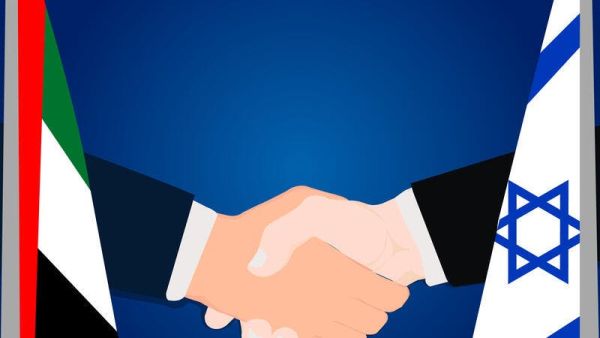Triggering mixed reactions across the world, the Thursday announcement of the deal that introduces full diplomatic ties between the UAE and Israel has prompted many discussions over the economic benefits each country is aiming for as a result of the agreement.
NEW: The UAE has unblocked Israeli websites and direct international phone lines with Israel in a first step following the U.S.-brokered normalization deal announced last week. https://t.co/8jQuG4RLed
— Axios (@axios) August 16, 2020
The economic potential of the normalization deal called by the Trump administration the "Abraham Accord" has been highlighted as the core aspect celebrated by both countries, in addition to their long-discussed joined-effort to combat the Iranian influence in the region feared by Israel as much as by GCC countries.
As a result of this deal, the two countries are expected to support each others' economies on various levels, particularly travel, tourism, and telecommunications sectors.
The Times of Israel estimates annual profits to hit "hundreds of millions of dollars as a result of this deal, specifically in trade and investments."
Things are moving quickly. The #UAE and #Israel sign their first business deal after agreeing to normalise ties. Abu Dhabi-based investor APEX National Investment and Israeli tech firm TeraGroup will conduct #coronavirus research. https://t.co/3dCPYMEu69 @farahesque
— Paul Wallace (@PaulWallace123) August 16, 2020
Additionally, only a few days after the deal was announced, the UAE-based Apex National Investment company and Israel's TeraGroup signed the very first trade cooperation agreement, hoping to conduct joint-research and studies that could lead to developing COVID-19 testing kits.
Reuters has reported that telephone lines have been open between the two countries and that Israel news websites, which have been blocked for years, have become accessible without the need for third-party tools.
Last May, the Emirati Etihad Airways made a historic first-time flight from Abu Dhabi to Tel Aviv, one that was claimed to carry humanitarian aid to Palestinians, a move that was heavily attacked by the Palestinians at that time.
Yesterday, the Emirati billionaire Mohammed Al Habtoor was reported to have contacted a private Israeli airline carrier with the goal of running direct tourism-focused flights between the two countries.
The diplomatic ties between the two countries have been brewing for several years already, especially after numerous announcements of secret visits between leaders and businessmen, in addition to Dubai's Expo 2020 assigning a whole pavilion to the Israeli delegation, before the whole event was rescheduled for 2021 due to the Coronavirus outbreak.
Now with official relations between the two countries, economies of both the UAE and Israel are expected to see a boost. Forbes has noted that we might soon hear news of oil deals with favorable prices, tourism packs that encourage Israelis to spend their vacations in a nearby warm destination especially during the winter season, in addition to education exchanges and employment opportunities for Israelis in the Gulf country.
In a recent report, Haaretz mentioned that investors in the Israeli defense industry have been talking about the potential of attracting Emirati money through arms sales, especially as the UAE government allocates $23 billion annually for its defense budget, most of which goes to the United States. According to the Jerusalem Post, Israeli arms exports accounted for 3% of the global total between the years 2015-2019 and has reached the highest record in March 2020.
More and more deals between businesses in the two countries are expected to unfold in the next few weeks, especially as the two countries prepare to inaugurate their newly-normalized cooperation by opening embassies soon.






